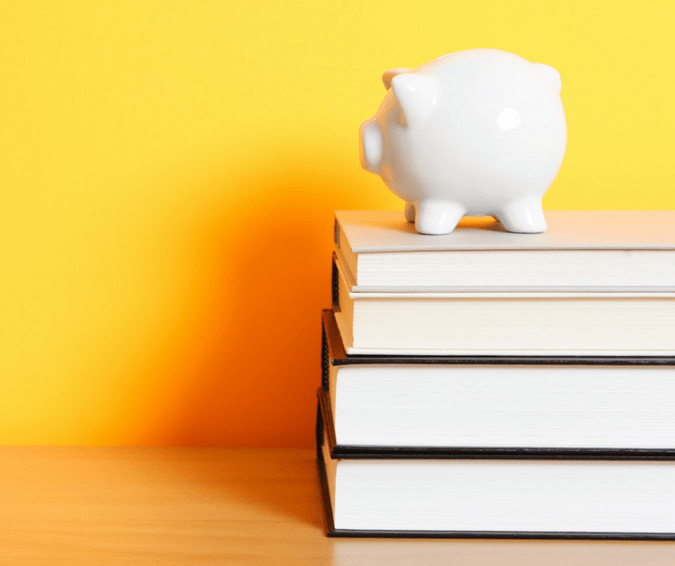Student loans are a necessary expense for many students. The questions of how students and their families are paying for college is a growing national concern. While these issues (and more) are sorted out, here are some smart ways students can start paying off their loans.
If you find yourself struggling to make student loan payments, you might be thinking about doing things such as selling items, being late with other payments or trying to find a second job. While these all work, there are things you can do now to try to pay them off without taking drastic measures.
Read more:
- How to Find College Scholarships
- Paying For College: Beyond Tuition Costs
- Understanding Student Loan Forgiveness Programs
HOW TO PAY OFF STUDENT LOANS FASTER
Know what you will owe
A 2017 study found that, on average, students were graduating from their first four years of college with more than $37,000 in student loan debt. For careers that require even more education, you can expect to go even further into the red.To get a good hold on their educational debt situation, students need to be prepared.
Students can get a clear understanding of what kind of totals they’ll be seeing by using a loan calculator. Saving and scanning copies of every loan they sign is also important and a good way to keep track of variable interest rates on private loans.
Investing in a file cabin or scanning hardware to maintain careful records is a must. With some forward thinking, students will have a clear understanding of what’s ahead. That helps them when the time comes to start paying off these loans.
In speaking with my husband, he wishes he would have used money earned during college to begin loan payments while he had the funds available. Once he graduated, he no longer had those funds. His bills absorbed his paychecks for some time and even minimum loan payments were hard to afford. Needless to say like many others our age, we are still paying off loans and likely will be for some time.
Take A Closer Look
A well thought out loan repayment strategy is more than a technique for avoiding financial headaches; it can also save you money. Consider using an online service or software program to get a good handle on your loans.
With linked accounts, visual representations and even the ability to show students different methods of repayment, a program like Tuition.io is worth consideration. Students who have only taken out federal loans can monitor their amounts and payments with the U.S. Department of Education’s National Student Loan Data System (NSLDS).
All students (and their parents) should be wary of certain student debt relief services. Be careful of companies who scam students looking for some respite from overwhelming loan payments with promises of consolidation or a year without payments. If the loans are federal, they can only be consolidated through the federal government.
Get help if you can’t pay it back
If a loan payment is more than your income, you might qualify for income-based repayment (IBR). These plans are based on disposable income and are typically paced out across longer periods of time.
There are resources available to help if you have issues paying back your student loan. Get free advice by calling 877-827-3868.
Refinance the loan
Check into refinancing options. While you may save on the overall payment each month that the lender requires, you will do better to continue paying a HIGHER payment instead! By sticking to the original payment you’ll not only save a heap in interest charges, but you’ll pay it off more quickly as well!
Don’t use the grace period
For federal loans, and for some private loans, students are given a ‘grace period’ of six months before their first payment is due. While it’s tempting to put off payments, if possible, students shouldn’t wait for this grace period to end before making the first payment. The sooner payments are made, the less interest can be incurred.
Make bi-weekly payments
A simple way to pay off your student loans more quickly is to make bi-weekly payments rather than one a month. Doing so will result in one extra payment being made each year. That can help chip away at that loan balance more quickly.
To determine the amount to pay, look at your monthly payment amount and divide it in half. Send this payment in every other week to your lender. Simple, isn’t it?
Not only will you pay your loan off more quickly, but you can also save on the total interest you pay. For example, if you owe $37,000 in debt and your interest rate is 5%, your monthly payment is $392.44. Over the life of the loan (10 years), you will pay more than $10,000 in interest! WOW!
However, if you divide that payment in half and pay $196.22 every two weeks instead, you will not only save around $1100 in interest, you will also pay the loan off 11 months sooner (just a bit longer than 9 years).
Throw everything you can at your debt
Every time you get a bonus, refund or any additional cash, apply it towards your loans. If you don’t want to give away your entire bonus, at least apply a portion to your debt. The sooner you can pay off your loans – the better.
Taking out and repaying student loans can seem daunting, but trust that a college degree is still worth the price. With accumulated savings, clever spending and making the right choices for the time spent on campus, a college degree is a great investment in the future of students and their families.
Preparing for college is so much more than ACT scores and admission essays. For more advice on navigating financials or saving for higher ed, click here for friendly advice from our friends at CommunityAmerica Credit Union. This post was written by Savin’ Maven Dana Gering.

